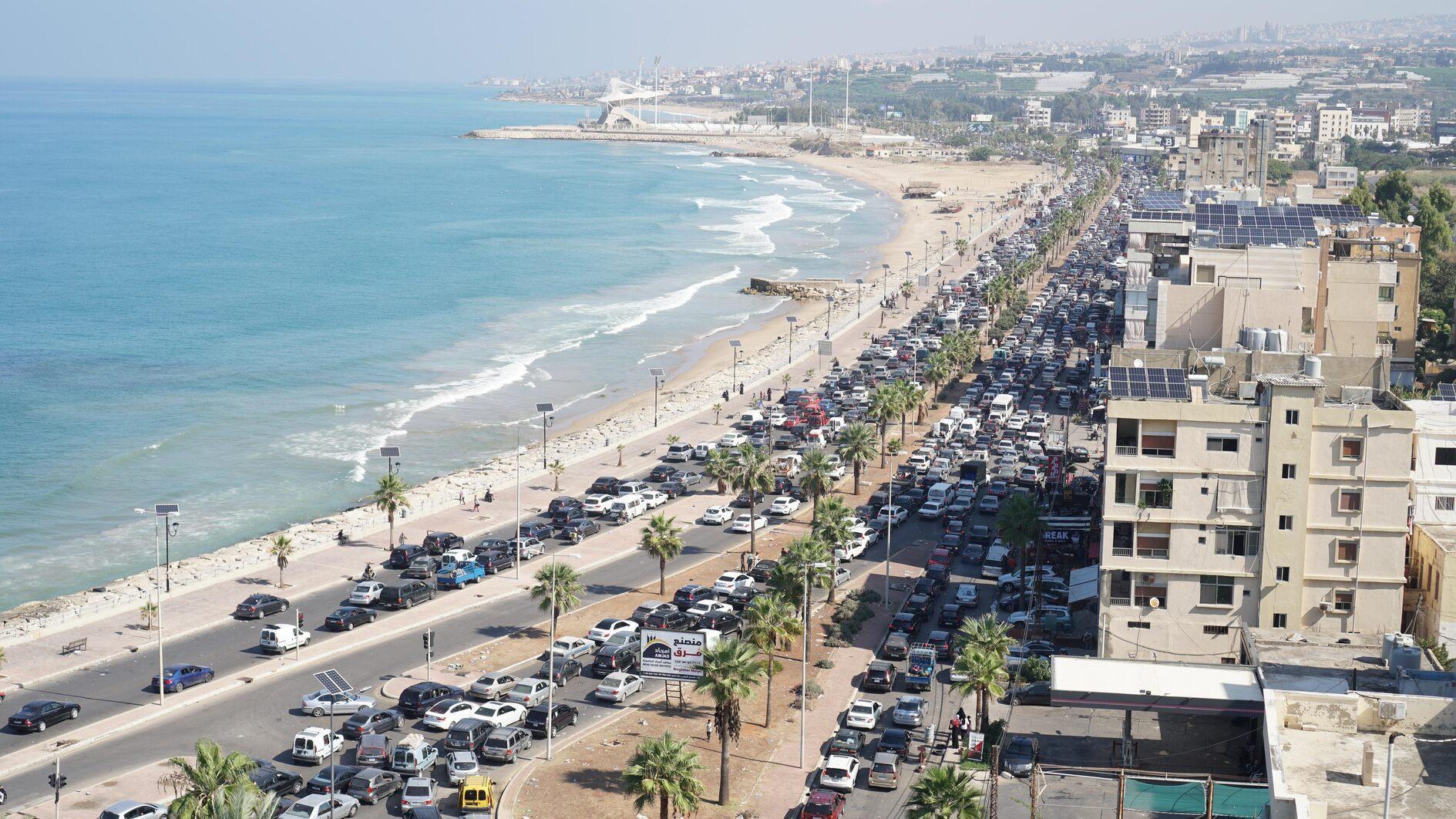
Tens of thousands of people have fled their homes in Lebanon as Israeli strikes pummelled the country, the U.N. said Tuesday, calling events "extremely alarming."
"We are gravely concerned about the serious escalation in the attacks that we saw yesterday," U.N. refugee agency spokesman Matthew Saltmarsh told reporters in Geneva.
"Tens of thousands of people were forced from their homes yesterday and overnight, and the numbers continue to grow," he said.
Israeli air strikes killed at least 558 people on Monday, including 50 children and 94 women, according to Lebanon's health ministry. At least four healthcare workers were killed and 16 paramedics injured, the World Health Organization said.
Hezbollah and Israel have been locked in near-daily cross-border exchanges of fire since Palestinian militants Hamas staged an unprecedented attack on Israel on Oct. 7.
Monday's bombardment of Lebanon was by far the largest since the war between Israel and the Iran-backed militant group in mid-2006.
Several U.N. agencies said they were ramping up their aid in Lebanon to address a situation that was already dire before the escalation.
Thousands of people fled southern Lebanon, jamming the main highway to Beirut in the biggest exodus since the 2006.
Hezbollah said on Tuesday that it had launched volleys of missiles at Israeli military bases, hours after 180 of its projectiles and an unmanned aerial vehicle crossed into Israeli airspace, sending people in the city of Haifa running for shelter.
The Israeli military said more than 50 projectiles were fired into northern Israel in less than 10 minutes yesterday morning, most of which were intercepted.
Israeli Prime Minister Benjamin Netanyahu made a direct appeal to the people of Lebanon not to allow Hezbollah to endanger their country.
"I have a message for the people of Lebanon: Israel's war is not with you. It's with Hezbollah," he said.
"Don't let Hezbollah endanger your lives and the lives of your loved ones. Don't let Hezbollah endanger Lebanon. Please, get out of harm's way now," he said.
More airlines have suspended their flights to the Israeli and Lebanese capital, with Lufthansa and Air France extending a suspension of flights to Tel Aviv, Tehran and Beirut.
Israel has dubbed its raids on Hezbollah "Operation Northern Arrows" after announcing earlier this month it was shifting the focus of its firepower from Gaza to Lebanon.
Hezbollah backer Iran, which arms, trains and funds the group, condemned the raids, with its president, Masoud Pezeshkian, saying yesterday that its ally "cannot stand alone" against Israel.
Other leaders have expressed alarm over the rapid escalation, with U.N. chief Antonio Guterres's spokesman saying he was "gravely alarmed" and the EU's top diplomat Josep Borrell warning "we are almost in a full-fledged war.”
The Pentagon said it was sending a small number of additional U.S. military personnel to the Middle East after thousands were deployed earlier alongside warships, fighter jets and air defense systems.
A U.S. official, speaking on condition of anonymity, said that Washington opposed an Israeli ground invasion targeting Hezbollah and had "concrete ideas" on how to de-escalate the crisis.
China's top diplomat Wang Yi expressed support for Lebanon and condemned what he described as "indiscriminate attacks against civilians.”
'Unacceptable'
Saltmarsh pointed out that even before the air strikes, there had been significant displacement from southern Lebanon.
"This is a region that has already been devastated by war and a country that knows suffering all too well," he said.
"The situation is extremely alarming. It is very chaotic," he added.
"The toll on civilians is unacceptable."
Monday's attacks came after an Israeli strike on southern Beirut on Friday killed dozens, including two senior Hezbollah commanders. Days earlier, coordinated communications device blasts that Hezbollah blamed on Israel killed 39 people and wounded almost 3,000.
Since last week, nearly 6,400 people had been injured in Lebanon, according to the WHO.
"The hospitals have been crazy challenged in managing the number of injuries since last week," WHO's representative in Lebanon, Abdinasir Abubakar, told reporters.
Speaking by video from Beirut, he said more than 90 percent of the wounds suffered last week when pagers used by Hezbollah exploded across Lebanon "are on the face and limbs, especially hands".
"Many people had both eye and hand injuries, which required two different sets of operations," he said.
"This is not normal," insisted Ravina Shamdasani, spokeswoman for the U.N. rights office.
"When you have people losing their eyes and when you have hospitals not able to cope with the amount of amputations that they need to carry out ... (it) is extremely abnormal."
She said the rights office was "extremely alarmed by the sharp escalation of hostilities", calling on "all parties to immediately cease the violence and to ensure the protection of civilians".
The U.N. children's agency decried the impact on young people in Lebanon.
"We are warning today that any further escalation in this conflict will be absolutely catastrophic for all children in Lebanon," said Ettie Higgins, UNICEF deputy representative in Lebanon, speaking from Beirut.
"Yesterday was Lebanon's worst day in 18 years. This violence has to stop immediately, or the consequences will be unconscionable."